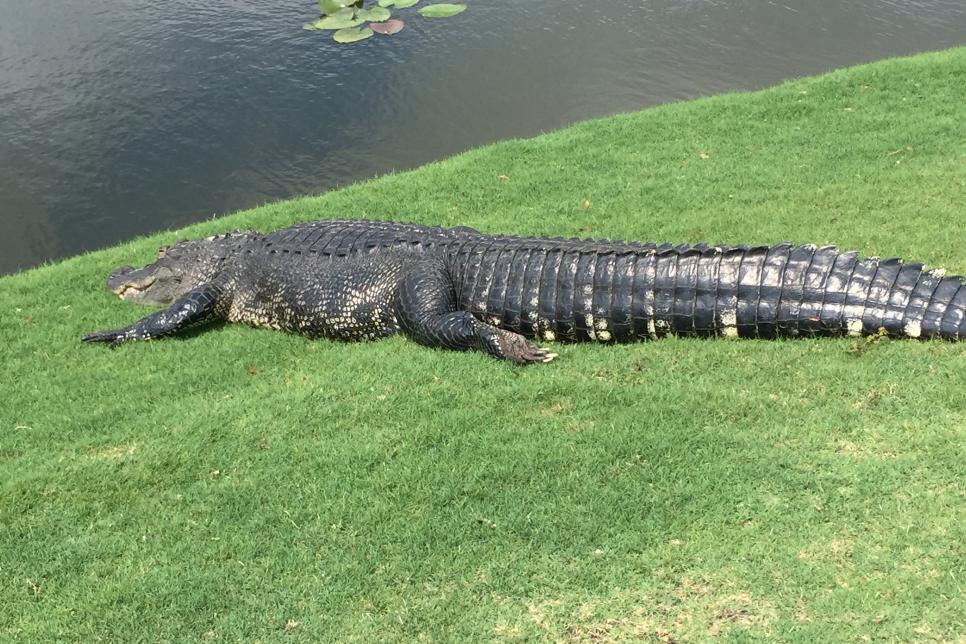News
Good news, everybody, alligators are eating the sharks

As apex predators — and ferocious and snappy ones at that — alligators basically live their lives doing what they want and going where they please. Now and again they’ll get suspicious about doorbells or time-travel here from the Jurassic period, but mostly they do their own primal, intimidating thing. Most of them don’t even ask before eating your dog.
Yet as a former resident of a coastal island that was swarming with gators (and poisonous snakes, and enormous flying cockroaches, and enormous regular cockroaches — seriously who builds a town in a swamp?), I confess that I generally believed the arrival of an alligator to be a negative, something that indicated it was probably time to consider sprinting in the opposite direction, generally while flailing my arms and/or shrieking AIEEEEEEEEEE! (Incidentally, running away from them is pointless, it’s an urban — or swamp — myth and will only make you look ridiculous in the last few moments before you’re devoured by an alligator.)
But not so! It turns out that alligators have lots of benefits, aside from being the only reason Animal Planet exists. For instance, according to a study in the journal Southeastern Nationalist (via the Washington Post), in addition to predatoring the hell out of crustaceans, fish and easily distracted birds, alligators sometimes waddle into salt water and eat a bunch of sharks. That’s right — alligators are keeping the coastal shark population under control for us, which is good, as it makes more room for all the snakes.
The journal study was helmed by James Nifong, a man who reportedly spent 10 years observing alligators, a job which generally required riding on small boats through gator-infested waters in the darkness, in case you feel like you had a lousy day at work today. During that time, Nifong and his team caught more than 500 alligators — five hundred of an animal that makes most of us sprint comically to the condo porch — to inspect the contents of their stomachs using a process that involved a hose, a pipe, what the paper called “something of a Heimlich maneuver” and apparently the world’s most patient alligators. (Have you ever tried giving medicine to a small dog? Imagine that, in reverse, using an alligator.)
In short, the gooey stomach contents revealed three new species of shark (and one new species of stingray, and I think we’ve all had dinners where we’re like, “Man, I could really go for some stingray”). The sharks were only three to four feet long — nothing near great white territory — but then again, if you suddenly found yourself swimming around with a dozen four-foot sharks, you’d still probably want to think about going home, after you were done peeing, of course.
The upshot to all this is not just that gators enjoy larger cuts of meat than previously thought, but that they’re able to venture out into saltwater habitats for longer periods than previously thought — sometimes for days at a time. Short version, with global warming, those of you in soon-to-be-coastal Ohio might want to start planning.
And finally, just in case this ever comes up: If you DO see a gator on your porch, or in your bike path, or on your breakfast table, or the passenger seat of your Yukon, for the love of God, don’t do anything. Don’t feed them, engage them, play with them, no matter how much “Man Vs. Wild” you fall asleep in front of. This makes alligators equate people with food, which, if it goes on long enough, means alligators have to be caught and destroyed, and nobody wants that, because it’s a needless waste, and also we’d never learn the secrets of time travel.